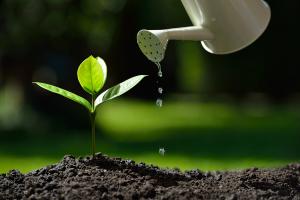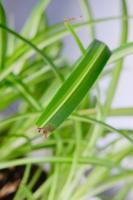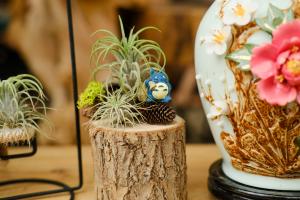Will Cinnamon Water Hurt Plants?
Cinnamon has become a popular household item, not only for adding flavor to dishes but also for its medicinal properties. Many people believe that cinnamon can prevent the growth of bacteria and fungi, making it a useful ingredient to add to water when watering plants. But, the question remains, will cinnamon water hurt plants? Let's explore the topic in-depth.
The Benefits of Cinnamon Water for Plants
Cinnamon, in its raw form, contains compounds that are beneficial to plants. For example, cinnamaldehyde, which gives cinnamon its characteristic aroma, can improve a plant's immune system and prevent the growth of harmful bacteria and fungi. When added to water, cinnamon can help prevent damping off, a fungal disease that can kill seedlings.
Additionally, cinnamon acts as a natural insecticide, keeping pests away from plants. The aroma of cinnamon can deter gnats, mosquitoes, and other insects that can be harmful to plants. Therefore, cinnamon water can be a useful tool for promoting plant growth and protecting them from potential harm.
The Risks of Using Cinnamon Water on Plants
Although cinnamon water has many benefits for plants, it is essential to use it in moderation. Overuse of cinnamon water can harm plants, as it can disrupt the natural balance of the soil. Using too much cinnamon can kill beneficial microorganisms in the soil, making it challenging for plants to absorb nutrients properly.
Cinnamon water can also cause root damage to plants, primarily when applied directly to the roots. The cinnamon oil can act as an irritant, causing damage to the delicate root system. Furthermore, cinnamon is known to inhibit seed germination, which can be harmful to plants that rely on seed dispersal for reproduction.
How to Use Cinnamon Water Safely on Plants
When using cinnamon water on plants, it is crucial to dilute it properly to avoid potential harm. A general rule of thumb is to use no more than one teaspoon of cinnamon per gallon of water. Additionally, it is best to apply cinnamon water to the soil around the plant rather than directly to the roots.
It is also essential to use cinnamon water sparingly, and only when necessary. For example, using cinnamon water to prevent damping off in seedlings may be more effective than using it on established plants. Furthermore, it is best to apply cinnamon water during the evening or early morning to prevent the sun from burning the leaves of the plant.
Conclusion
Cinnamon water can be a useful tool for promoting plant growth and protecting them from potential harm. However, it is essential to use it in moderation to avoid potential harm to the plant's health. Diluting the cinnamon water properly and applying it to the soil around the plant can help prevent harm to the root system. Keeping these precautions in mind, cinnamon water can be a valuable addition to any gardener's toolset.

 how many times do yo...
how many times do yo... how many planted tre...
how many planted tre... how many pine trees ...
how many pine trees ... how many pecan trees...
how many pecan trees... how many plants comp...
how many plants comp... how many plants can ...
how many plants can ... how many plants and ...
how many plants and ... how many pepper plan...
how many pepper plan...
































